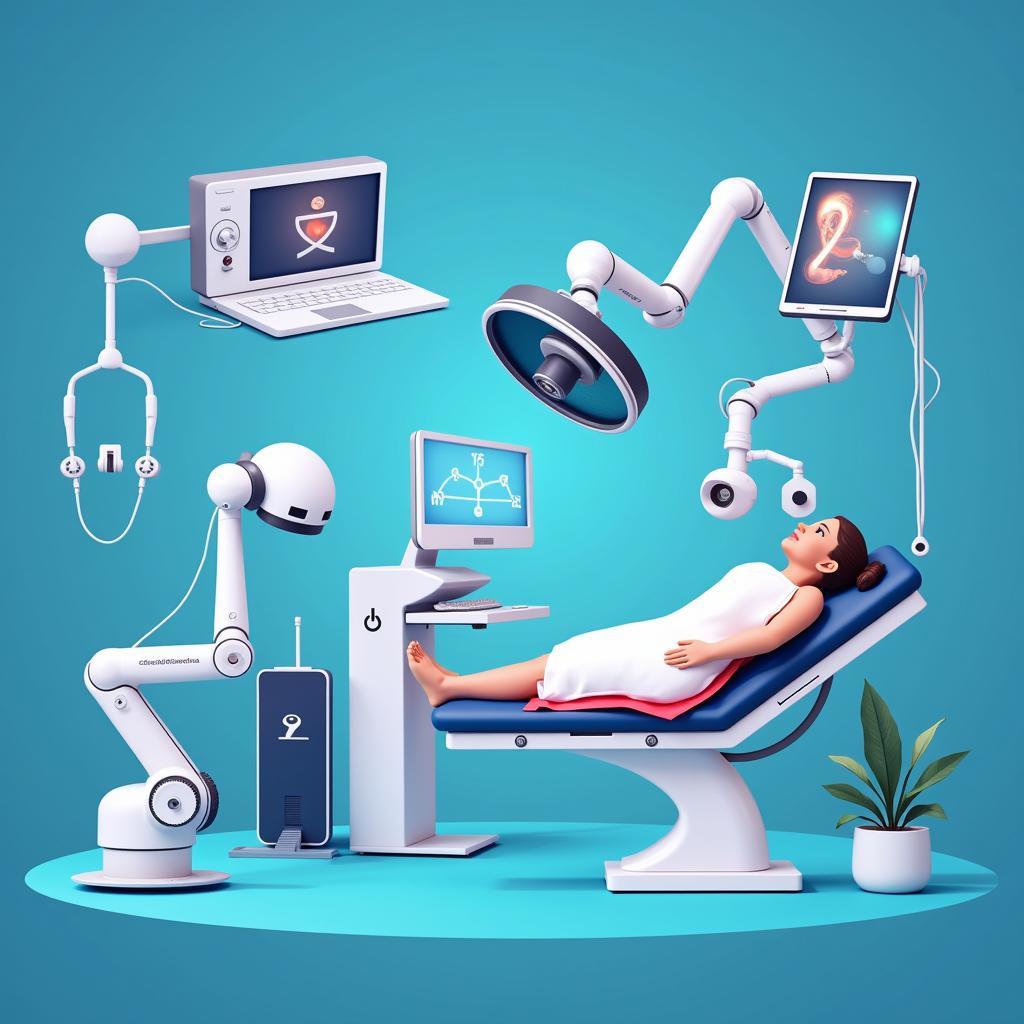Healthcare is undergoing a dramatic transformation. The convergence of scientific breakthroughs, technological advancements, and evolving patient expectations is reshaping the industry landscape. To thrive in this dynamic environment, healthcare organizations need a robust strategy for both market development and overall strategic positioning. This involves understanding market trends, identifying unmet needs, and developing innovative solutions that deliver value to patients, providers, and payers.
Understanding the Importance of a Healthcare Strategy
A well-defined healthcare strategy provides a roadmap for organizations to navigate the complexities of the industry, ensuring sustainability and long-term success. It involves a thorough analysis of internal capabilities and external factors to identify opportunities and mitigate potential threats.
Key Elements of a Successful Healthcare Strategy:
- Market Analysis: Identifying target patient populations, understanding their needs and preferences, and analyzing the competitive landscape.
- Value Proposition: Defining the unique value that an organization offers to its stakeholders, including patients, providers, and payers.
- Innovation: Fostering a culture of innovation to develop new products, services, and care delivery models that address unmet needs.
- Strategic Partnerships: Collaborating with other organizations to leverage complementary strengths and expand reach.
- Financial Sustainability: Developing a sustainable financial model that supports growth and innovation while ensuring affordability and accessibility.
 Cutting-edge medical technology in a modern healthcare facility.
Cutting-edge medical technology in a modern healthcare facility.
Market Development in Healthcare
Market development focuses on expanding the reach of existing products or services to new markets or customer segments. In healthcare, this can involve:
- Geographic Expansion: Targeting new geographical regions or underserved populations.
- Service Line Expansion: Introducing new medical specialties or expanding existing ones to meet evolving patient needs.
- New Patient Acquisition: Implementing targeted marketing and outreach programs to attract new patients.
- Digital Health Adoption: Leveraging digital health technologies, such as telehealth and mobile health apps, to improve access to care and enhance the patient experience.
“In today’s competitive healthcare landscape, organizations must be proactive in identifying and capitalizing on market opportunities,” says Dr. Sarah Jones, a healthcare management consultant. “A strategic approach to market development is essential for driving growth and ensuring long-term sustainability.”
Challenges and Opportunities
The healthcare industry faces numerous challenges, including rising costs, regulatory pressures, and workforce shortages. However, these challenges also present opportunities for innovation and growth. For example, the increasing demand for value-based care is driving the adoption of new payment models and care delivery approaches.
The Future of Healthcare Strategy & Market Development
The future of healthcare will be shaped by several trends, including:
- Personalized Medicine: Tailoring treatments to individual patients based on their genetic makeup and lifestyle.
- Artificial Intelligence: Leveraging AI to improve diagnostics, treatment planning, and patient care.
- Data Analytics: Utilizing big data analytics to identify trends, improve outcomes, and reduce costs.
- Patient Empowerment: Empowering patients to take a more active role in managing their health.
 Futuristic healthcare concept with a doctor interacting with holographic patient data.
Futuristic healthcare concept with a doctor interacting with holographic patient data.
Conclusion
A well-defined strategy for healthcare strategy & market development is essential for organizations to succeed in today’s dynamic healthcare environment. By embracing innovation, focusing on value creation, and adapting to evolving market trends, healthcare providers, payers, and other industry stakeholders can ensure they are well-positioned to meet the challenges and opportunities of the future.
FAQ
1. What are the key components of a healthcare market development plan?
A comprehensive healthcare market development plan should include market analysis, identification of target audiences, a defined value proposition, a marketing and sales strategy, and metrics for measuring success.
2. How can digital marketing be used for healthcare market development?
Digital marketing offers various tools for healthcare market development, including search engine optimization (SEO), social media marketing, content marketing, email campaigns, and online advertising.
3. What are some examples of successful healthcare market development strategies?
Examples include expanding telehealth services, developing specialized clinics, launching patient education campaigns, partnering with community organizations, and implementing patient loyalty programs.
4. Why is it important to stay updated on healthcare industry trends?
Staying abreast of healthcare trends is crucial for anticipating market shifts, identifying opportunities, and adapting strategies to maintain a competitive edge.
5. What are the key performance indicators (KPIs) for measuring healthcare market development success?
Essential KPIs include patient acquisition cost, customer lifetime value, market share growth, brand awareness, patient satisfaction, and return on marketing investment.
Need Help with Your Healthcare Strategy & Market Development?
Contact us today for expert guidance and support.
Phone: 02043854663
Email: [email protected]
Address: Khu 34, Bac Giang, 260000, Vietnam
Our dedicated team is available 24/7 to assist you.